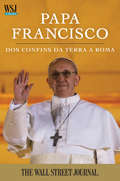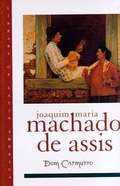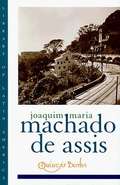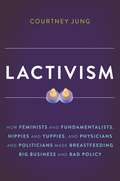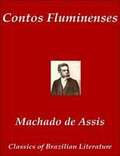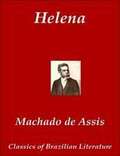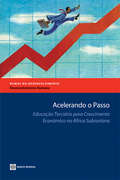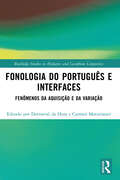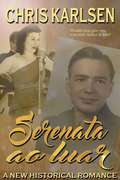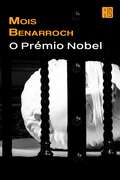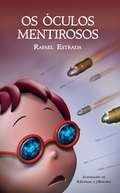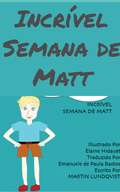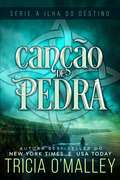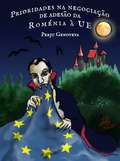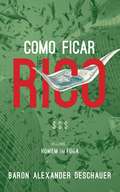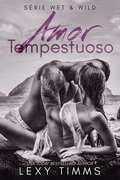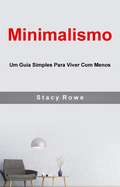- Table View
- List View
Papa Francisco
by The Wall Street JournalEm 13 de março, os cardeais da Igreja Católica, reunidos para eleger um sucessor de um Papa ainda vivo pela primeira vez em 600 anos, anunciaram uma mudança dramática. Ao eleger o cardeal Jorge Mario Bergoglio da Argentina como Papa Francisco 266°, os cardeais nomeavam o primeiro Papa do emergente Novo Mundo em toda história, para assumir a liderança da Igreja em um momento crucial. Esta foi uma mudança impressionante feita por uma instituição de 2000 anos de idade que tem imensa influência -- com 1.2 bilhões de seguidores em todo mundo -- e enormes problemas, incluindo um escândalo de abuso sexual que perdura por uma década e abalou a fé na instituição, escassez de padres e tendências seculares, que fizeram a Igreja perder membros e colocaram à prova sua relevância em um mundo em transformação. Desde a surpreendente decisão do Papa Bento XVI de se aposentar, até a apresentação do Papa Francisco, das tranquilas ruas de bairro de Buenos Aires até a primeira fila da praça de São Pedro, os repórteres do Wall Street Journal registraram essas dramáticas semanas na vida da mais antiga instituição do mundo. Agora, em um novo e-book, os repórteres do Journal irão apresentar uma biografia detalhada, original e oportuna do novo Papa Francisco, bem como novas visões das negociações e do drama que cercaram sua acensão. Papa Francisco irá apresentar a história completa e aprofundada da mudança de direção da Igreja e do homem encarregado de liderá-la, e analisar como o Papa Francisco poderá lidar com anos de escândalo e deficiência, enquanto lidera os católicos de todo o mundo em direção a uma fé mais profunda. The Wall Street Journal é o maior jornal dos Estados Unidos, considerando a circulação média total, com quase 2.3 milhões de assinantes e 36 milhões de visitantes digitais de todo o mundo por mês. Nos últimos anos, o Journal expandiu o seu conteúdo central para incluir a cobertura de arte, cultura, estilo de vida, esportes e saúde, tendo como base sua tradição como fonte principal de notícias financeiras e de negócios. Como uma das maiores operações de captação de notícias do mundo com 2.000 jornalistas em mais de 50 países, a franquia Journal abrange atualmente oito edições em 11 línguas, envolvendo leitores através de jornais, websites, revistas, mídia social e vídeos. O Journal detém 34 prêmios Pulitzer pela sua excelência em jornalismo.
Dom Casmurro
by Machado Assis"A palm tree, seeing me troubled and divining the cause, murmured in its branches that there was nothing wrong with fifteen-year old boys getting into corners with girls of fourteen; quite the contrary, youths of that age have no other function, and corners were made for that very purpose. It was an old palm-tree, and I believed in old palm-trees even more than in old books. Birds, butterflies, a cricket trying out its summer song, all the living things of the air were of the same opinion. " So begins this extraordinary love story between Bento and Capitu, childhood sweethearts who grow up next door to each other in Rio de Janeiro in the 1850s. Like other great nineteenth century novels--The Scarlet Letter, Anna Karenina, Madame Bovary--Machado de Assis's Dom Casmurro explores the themes of marriage and adultery. But what distinguishes Machado's novel from the realism of its contemporaries, and what makes it such a delightful discovery for English-speaking readers, is its eccentric and wildly unpredictable narrative style. Far from creating the illusion of an orderly fictional "reality," Dom Casmurro is told by a narrator who is disruptively self-conscious, deeply subjective, and prone to all manner of marvelous digression. As he recounts the events of his life from the vantage of a lonely old age, Bento continually interrupts his story to reflect on the writing of it: he examines the aptness of an image or analogy, considers cutting out certain scenes before taking the manuscript to the printer, and engages in a running, and often hilarious, dialogue with the reader. "If all this seems a little emphatic, irritating reader," he says, "it's because you have never combed a girl's hair, you've never put your adolescent hands on the young head of a nymph. . . " But the novel is more than a performance of stylistic acrobatics. It is an ironic critique of Catholicism, in which God appears as a kind of divine accountant whose ledgers may be balanced in devious as well as pious ways. It is also a story about love and its obstacles, about deception and self-deception, and about the failure of memory to make life's beginning fit neatly into its end. First published in 1900, Dom Casmurro is one of the great unrecognized classics of the turn of the century by one of Brazil's greatest writers. The popularity of Machado de Assis in Latin America has never been in doubt and now, with the acclaim of such critics and writers as Susan Sontag, John Barth, and Tony Tanner, his work is finally receiving the worldwide attention it deserves. Newly translated and edited by John Gledson, with an afterword by Joao Adolfo Hansen, this Library of Latin America edition is the only complete, unabridged, and annotated translation of the novel available. It offers English-speaking readers a literary genius of the rarest kind.
Quincas Borba
by Machado De AssisAlong with The Posthumous Memoirs of Br's Cubas and Dom Casmurro, Quincas Borba is one of Machado de Assis' major works and indeed one of the major works of nineteenth-century fiction. With his uncannily postmodern sensibility, his delicious wit, and his keen insight into the political and social complexities of the Brazilian Empire, Machado opens a fascinating world to English-speaking readers. When the mad philosopher Quincas Borba dies, he leaves to his friend Rubiao the entirety of his wealth and property, with a single stipulation: Rubiao must take care of Quincas Borba's dog, who is also named Quincas Borba, and who may indeed have assumed the soul of the dead philosopher. Flush with his newfound wealth, Rubiao heads for Rio de Janeiro and plunges headlong into a world where fantasy and reality become increasingly difficult to keep separate. We encounter roses that speak to each other, discussing the character and actions of their owner, Sofia; even the stars above occasionally comment, sarcastically, on the humans below. When Rubiao falls in love with the wife of his best friend, we see adultery as yet another betrayal of reality. Rubiao's own hold on reality becomes ever more tenuous as he makes elaborate plans for his marriage, even though he has no bride, and fantasizes that he has become Napoleon III. The very nature of reality, the novel seems to be saying, is an agreed-upon fiction told by an unreliable narrator. Brilliantly translated by Gregory Rabassa, Quincas Borba is a masterful satire not only on life in Imperial Brazil but the human condition itself.
Lactivism: How Feminists and Fundamentalists, Hippies and Yuppies, and Physicians and Politicians Made Breastfeeding Big Business and Bad Policy
by Courtney JungIs breast really best? Breastfeeding is widely assumed to be the healthiest choice, yet growing evidence suggests that its benefits have been greatly exaggerated. New moms are pressured by doctors, health officials, and friends to avoid the bottle at all costs--often at the expense of their jobs, their pocketbooks, and their well-being. In Lactivism, political scientist Courtney Jung offers the most deeply researched and far-reaching critique of breastfeeding advocacy to date. Drawing on her own experience as a devoted mother who breastfed her two children and her expertise as a social scientist, Jung investigates the benefits of breastfeeding and asks why so many people across the political spectrum are passionately invested in promoting it, even as its health benefits have been persuasively challenged. What emerges is an eye-opening story about class and race in America, the big business of breastfeeding, and the fraught politics of contemporary motherhood.
Contos Fluminenses
by Machado De AssisContos Fluminenses e o primeiro livro de contos publicado por Machado de Assis. Neste livro, o autor explora a vida da socidade brasileira na epoca do Imperio. O livro inclui os seguintes contos: Miss Dollar Luis Soares A Mulher de preto O segredo de Augusta Confissoes de uma viuva moca Linha reta e linha curva Frei Simao
Helena
by Machado De AssisA estoria de Helena, uma moca pobre que repentinamente herda uma grande fortuna e tem que escolher entre o amor e a sua posicao social. Um grande romance de Machado de Assis.
Acelerando o Passo
by Desenvolvimento HumanoO restabelecimento do crescimento económico que se tem registado por toda a África Subsariana (ASS) desde o início do milénio constitui um desenvolvimento encorajador. Sustentá-lo para sempre é não só uma necessidade mas também um desafio de primeira ordem. Num mundo globalizado, a chave do sucesso económico reside, cada vez mais, no grau de eficácia com que um país consegue assimilar o conhecimento disponível e desenvolver vantagem comparativa em áreas seleccionadas com boas perspectivas de desenvolvimento. Aumentar a relevância da educação terciária e da investigação na África Austral permitirá à Região aumentar a sua vantagem comparativa alargando as fronteiras da tecnologia através de inovação, estimular a diversificação de produtos e serviços, e maximizar os retornos de bens de capital com uma mais eficiente alocação e gestão de recursos. Os países africanos registaram grandes avanços na aquisição de altos níveis de literacia e no aumento das matrículas no ensino primário, um progresso que cria alicerces para desenvolvimento futuro. Agora é necessário que avancem rapidamente para a aquisição de qualificaçães e especializaçães de nível superior que lhes permitam acrescentar valor à s actividades económicas existentes e lançar-se em novas indústrias e serviços. 'Acelerando o Passo: Educação Terciária para Crescimento Económico na África Subsariana' apresenta em detalhe argumentos para um maior crescimento do conhecimento intensivo, solicitando uma maior atenção à educação secundária e, principalmente, à educação pós-secundária. Nele se demonstra por que razão os sistemas de ensino superior da África Subsariana deverão procurar um maior alinhamento com as estratégias nacionais de desenvolvimento económico e redução da pobreza, e se identificam os benefícios que poderão associar-se a essa mudança de perspectiva. Será, pois, um livro do maior interesse para organizaçães internacionais, governos, instituiçães de pesquisa e universidades de toda a região.
O Alienista
by Machado De AssisA sarcastic criticism of the science of its day, O Alientista, considered a classic of Brazilian literature, tells the story of psychiatrist Simão Bacamarte, who convinces the town of Itaguaí to pay for an assylum, and begins to fill it with residents he believes insane. While the assylum at first has a few patients, it grows quickly until, after a revolt by many in the town is fought off, it includes 4/5ths of the town! Realizing something is wrong, Bacamarte releases those committed saying that those committed are infact normal. Instead, he concludes, the insane are those who are considered normal or exemplary. Then his friends convince him that he is, in fact, exemplary. . .
Senhora
by José De AlencarA critique of marriage of convenience, this classic of Brazilian literature clarifies universal truths as one-time lovers reconcile as husband and wife. The poor orphan Aurélia is devastated when her true love, Fernando, breaks their engagement for the financial rewards of a marriage of convenience to another. But Aurélia unexpectedly inherits a fortune and plans her revenge. Winning marriage to Fernando with a large dowery, she stuns her lover on their wedding night by imposing a marriage of convenience until the dowery is returned. The marriage descends into one of hate more than convenience, until both recognize the errors of their ways.
Memorial de Aires
by Machado De AssisThe last novel by Brazil's most important writer, Memorial de Aires doesn't have a strict plot. It is structured as a kind of diarly of Counselor Aires, a retired diplomat. His notes tell several stories including that of Tristão, who falls in love with and marries a young widow, Fidália. After their marriage, the couple go to Europe, leaving their friends with only sadness and memories. Known as the novel that best reflects the personality and life of Machado de Assis, Memorial de Aires substitutes the irony and sarcasm of his earlier novels with a compassionate and melancholy tone. Some critics count the novel as a literary and human testament from the master of Brazilian letters.
Fonologia do Português e Interfaces: Fenômenos da Aquisição e da Variação (Routledge Studies in Hispanic and Lusophone Linguistics)
by Javier Muñoz-Basols Dermeval Da Hora Carmen MatzenauerFonologia do Português e Interfaces: Fenômenos da Aquisição e da Variação brings together a collection of studies on phonological acquisition and phonological variation in European and Brazilian Portuguese, addressing topics and proposing analyzes that are little studied in linguistic research in the target language. The eleven chapters foster theoretical debates on the processes underlying both phonological acquisition and variation and show how these are interrelated. They focus on the acquisition of phonology by children as well as adult variation in the use of phonological units in everyday speech, highlighting linguistic processes that occur in both contexts. The volume combines theory and practices with a focus on language teaching and acquisition. The book will be of interest to Lusophony linguists, particularly those interested in phonological acquisition and variation, and should prove useful to linguistic researchers, practitioners, and students of Portuguese in Europe, Latin America, and the US. Fonologia do Português e Interfaces: Fenômenos da Aquisição e da Variação reúne uma coletânea de estudos sobre aquisição fonológica e variação fonológica no Português Europeu e Brasileiro, com a abordagem de tópicos e a proposição de análises pouco estudados na pesquisa linguística na língua-alvo. Os onze capítulos promovem debates teóricos sobre os processos subjacentes tanto à aquisição quanto à variação fonológica e mostram como estão inter-relacionados. Concentram-se em unidades fonológicas na fala cotidiana na aquisição da fonologia por crianças, bem como na variação na fala de adultos, destacando os processos linguísticos que ocorrem em ambos os contextos. O volume combina teoria e prática com foco no ensino e na aquisição da língua. O livro será de interesse para linguistas da Lusofonia, particularmente para aqueles voltados para a aquisição e a variação fonológica, e deverá ser útil para pesquisadores da área da Linguística, para usuários da língua e para estudantes de Português na Europa, na América Latina e nos Estados Unidos.
Fonologia do Português e Interfaces: Fenômenos da Aquisição e da Variação (Routledge Studies in Hispanic and Lusophone Linguistics)
by Javier Muñoz-Basols Dermeval Da Hora Carmen MatzenauerFonologia do Português e Interfaces: Fenômenos da Aquisição e da Variação brings together a collection of studies on phonological acquisition and phonological variation in European and Brazilian Portuguese, addressing topics and proposing analyzes that are little studied in linguistic research in the target language.The eleven chapters foster theoretical debates on the processes underlying both phonological acquisition and variation and show how these are interrelated. They focus on the acquisition of phonology by children as well as adult variation in the use of phonological units in everyday speech, highlighting linguistic processes that occur in both contexts. The volume combines theory and practices with a focus on language teaching and acquisition.The book will be of interest to Lusophony linguists, particularly those interested in phonological acquisition and variation, and should prove useful to linguistic researchers, practitioners, and students of Portuguese in Europe, Latin America, and the US.Fonologia do Português e Interfaces: Fenômenos da Aquisição e da Variação reúne uma coletânea de estudos sobre aquisição fonológica e variação fonológica no Português Europeu e Brasileiro, com a abordagem de tópicos e a proposição de análises pouco estudados na pesquisa linguística na língua-alvo.Os onze capítulos promovem debates teóricos sobre os processos subjacentes tanto à aquisição quanto à variação fonológica e mostram como estão inter-relacionados. Concentram-se em unidades fonológicas na fala cotidiana na aquisição da fonologia por crianças, bem como na variação na fala de adultos, destacando os processos linguísticos que ocorrem em ambos os contextos. O volume combina teoria e prática com foco no ensino e na aquisição da língua.O livro será de interesse para linguistas da Lusofonia, particularmente para aqueles voltados para a aquisição e a variação fonológica, e deverá ser útil para pesquisadores da área da Linguística, para usuários da língua e para estudantes de Português na Europa, na América Latina e nos Estados Unidos.
Dieta Vegana: Receitas Incríveis de Sobremesas Veganas
by Beran KumaSe você quiser diminuir seu colesterol, prevenir doenças cardíacas e perder peso, comer o alimento certo é o melhor remédio. Comer de forma saudável é um desafio para aqueles com vidas aceleradas; muitos estudos mostraram que os veganos parecem ter um menor risco de ataque cardíaco, obesidade, pressão alta, diabetes mellitus e algumas formas de câncer. Muitas pessoas cortaram laticínios, carne e óleos e viram resultados notáveis. Ainda bem que há uma maneira comprovada de eliminar todos os quilos extras que você estava morrendo para se livrar já faz um tempo. Este método eficaz é chamado a dieta vegana, e definitivamente vai mudar você, seu corpo e seu estilo de vida. Este livro, "Livro de Receitas Veganas: Dieta para Vigilantes do Peso e Brilho Interior" vai te ensinar tudo que você precisa para aprender sobre a dieta vegana e às vezes paleolítica que irá ajudá-lo a atingir o peso que você sempre sonhou. Ele contém truques e dicas que ajudarão você a implementar com sucesso um programa de dieta vegana de 14 dias que permitirá a perda de peso. Ele também tem receitas deliciosas e fáceis de seguir que não só irão ajudá-lo a atingir seu objetivo de perda de peso, mas também satisfazer todos os desejos que você possa ter. Se você experimentar as receitas deste livro, sua dieta certamente não consistirá em alimentos sem graça. Esta dieta vegana não vai custar a satisfação de seu paladar apenas para que você possa perder peso.
João quer ser o Messi: Um livro infantil sobre futebol e inspiração (João quer ser o Messi #1)
by Tanya PremingerVencedora do MOM'S CHOICE AWARDS 2018 - Honrando Excelência Mundialmente Confiável por Pais e Educadores João, um aluno de segundo ano imaginativo e apaixonado por futebol, quer ser o grande astro do futebol Leo Messi, e está a trabalhar duro para o seu objetivo. Ele luta contra medos, intimidações, lição de casa e de dormir em busca de seu sonho de se tornar o melhor jogador de futebol do mundo. Um livro infantil e envolvente sobre futebol, prática e inspiração. Belas ilustrações de Elettra Cudignotto. Citação do livro: "Demorei 17 anos e 114 dias para ser um sucesso instantâneo". - Lionel Andrés Messi Este livro de capítulos faz parte de uma série, mas funciona facilmente como um livro independente. É adequado para crianças entre os 6 e os 10 anos (nível de leitura 3, do 1º ao 4º ano). Ideal para os primeiros leitores ou para ser lido em voz alta por um dos pais como uma história para dormir.
Serenata ao Luar
by Chris KarlsenÉ 1945. O Marine dos Estados Unidos, Ron Day, lutou ilha após ilha pelo Pacífico Sul. Sua companhia tem uma nova batalha brutal no horizonte - Okinawa. Ron recebe uma folga em Melbourne, Australia, antes de seguir para Okinawa. Em Melboune, ele conhece Charmaine Sturgis, uma linda cantora de uma big band. Como muitas coisas que podem acontecer numa guerra, eles se apaixonam durante o seu curto tempo de folga. ... E a guerra sempre acaba roubando algo de todos nós.
Olla De Cocción Lenta: Comidas Deliciosas Y Deliciosas Para Tu Crockpot (Recetas Vintage)
by Frank SilverÀ medida que o inverno se aproxima, um prato de frango é o melhor remédio. O frango é um antidepressivo natural, um regulador da tiroide, um estimulador do metabolismo, um protetor dos ossos e combatente do cancro. Coloque uma mão cheia de ingredientes na panela de cozedura lenta, misture alguns legumes e especiarias e agite bem. As receitas descritas neste livro foram testadas para criar pratos bonitos e suculentos para qualquer ocasião. Está na hora de parar de frequentar os seus restaurantes de "fast food" preferidos e começar a criar receitas fáceis, de dar água na boca, no conforto da sua própria cozinha! Este livro é preenchido com uma infinidade de receitas saudáveis que sua família vai certamente apreciar. Preparar receitas saborosas é simples, mesmo para cozinheiros amadores, desde que estes ponham as mãos neste ótimo livro de receitas. Este livro pode não ser o maior best-seller, mas tem receitas lentas fáceis e deliciosas. Vai passar a gostar de preparar comer as suas próprias receitas. Imensas pessoas começaram ter mais consciência sobre os benefícios da alimentação saudável. Mesmo que a "fast food" seja considerada saborosa, esta não é de todo saudável e pode ser a causa de muitas doenças graves e crónicas. A era moderna é a principal causa que nos fez mudar os nossos hábitos alimentares, visto que muitas pessoas não têm tempo suficiente para cozinhar suas próprias refeições. Tenha sua cópia hoje clicando no botão no topo desta página!
O Prémio Nobel
by Mois Benarroch“Como em muitos destes encontros não me chegava a convencer de que eram reais, não tinha a certeza se os havia imaginado, ou antes escrito, pelo menos na minha mente, ou se tinham acontecido de verdade. Sentia-me esquizofrénico e como num desses filmes em que de repente o personagem principal se encontra numa instituição de saúde mental onde lhe explicam pouco a pouco que tudo o que viveu durante os últimos anos, ou em toda a sua vida, não foi mais que fruto da sua mente. Mas então não estarão todos os escritos loucos? Não inventam por acaso a cada dia as suas próprias vidas? Não as estão imaginando a cada minuto?” Neste romance curto acompanhamos o vaguear de um escritor que, entre as ruas da cidade de Irxal, os cafés de sempre, a casa da família de sempre e o hospital psiquiátrico onde está internado um escritor amigo, se deixa perder no limbo instável entre o real e da ficção. No todo “de sempre”, a cada esquina uma surpresa. A literatura e a realidade fundem-se, personagens ganham corpo e escritores perdem-se na dúvida da sua própria existência. E nós, leitores, podemos estar seguros do limite entre o real e a ficção? Ou vivemos todos num limbo delicado, também nós com um pé entre o real e o imaginado?
Os Óculos Mentirosos
by Rafael EstradaDispara contra os inimigos imáginários e se sente muito bem, imitando as coisas que vê nos filmes. Um homem com óculos escuros lhe observa, porque afirma que através deles pode ver as coisas tal como são: vê que seu fuzil de plástico verde o está obrigando a brincar, vê que as guerras não são o que parecem e que as armas se encontram entre nós porque querem executar um terrível plano.
Incrível semana de Matt
by Martin LundqvistUma semana agitada de ensino a um garoto sobre a vida. Matt é um menino de 6 anos que vive em Sydney com seus pais. Acompanhe Matt em uma semana cheia de amizade e futebol, bem como as questões existenciais da vida, como ciência vs religião e a perda de um ente querido, descritos por uma criança. Este livro seria apropriado para crianças entre 5 e 9 anos.
Canção de Pedra (Série A Ilha do Destino #1)
by Tricia O'MalleyA autora de best-sellers do New York Times e USA Today, Tricia O'Malley, apresenta um fascinante romance de magia na moderna Dublin. Clare MacBride tem sua vida exatamente do jeito que ela quer. Em um ano, ela terá concluído sua dissertação de geologia, embora não esteja mais perto de descobrir a resposta para uma pergunta que a atormenta. Por que ela sente pedras pulsando com energia? Uma maldição secular, uma misteriosa facção de protetores e uma pedra mitológica soam como bobagens de conto de fadas do velho mundo para Clare. Leva apenas uma noite chuvosa com uma fada de olhos prateados e um belo estranho prometendo proteção para agitar seu mundo para sempre. Com seus planos de vida jogados a seus pés, as linhas da ciência e da ficção se confundem enquanto Clare é forçada a jogar tudo o que sabe sobre o mundo pela janela e procurar no fundo de seu coração por respostas.
O Valentão
by Sky CorganApenas a visão de Dustin Nikoli aumentou o medo em meu coração. As lembranças das coisas que ele me fez passar no ensino médio me fizeram querer correr na outra direção. Eu era a sujeira no fundo de seus sapatos, seu único objetivo era me atormentar. Ninguém mais viu. Para os seus pares, ele era homem de verdade. Para todas as meninas não afetadas por sua crueldade, um objeto de luxúria. Ele era o mais quente que você poderia conhecer. Cara bonita. Corpo incrível. Feio por dentro. Eu me mudei para outra cidade para a faculdade para evitá-lo. Eu nunca esperei que ele já estivesse lá. Talvez eu devesse ter feito minha pesquisa melhor. A noite que eu encontrei com ele não poderia ter sido pior. Foi a gota d'agua. Eu não iria mais suportar sua merda. Usei minha embriaguez para me dar coragem e disse tudo o que pensava sobre ele. E então acabei em sua cama ...
Prioridades na negociação de adesão da Roménia à UE: Integração europeia
by Perju GenovevaA competitividade das exportações romenas melhorou tanto como resultado da reestruturação da economia como da desvalorização da moeda. O exemplo da produção industrial é ilustrativo. A produção da indústria de processamento diminuiu com 8% em 1999 face a 1998, a sua participação em exportações aumentando de 30,7% a 35,1%, e a taxa de crescimento das exportações foi de 5,9%. O efeito principal foi uma redução do défice da conta corrente. Em geral, o défice da conta corrente flutuou, representando, em média, 5,2% de PIB. O défice orçamentário foi difícil de controlar, mas conseguiu-se através da aplicação dos rigores da União Européia. Podemos falar sobre desempenhos também em termos do nível da dívida externa em relação ao nível da dívida externa da União, que se situa em um nível mais elevado em comparação com o de outros países candidatos. O mercado de trabalho foi afetado por desequilíbrios, tanto no nível da relação entre a população ativa e a inativa, quanto na taxa de emprego. A população ocupada na agricultura detêm aproximadamente 40% do total da população ocupada. Além disso, uma grande parte da população foi afectada pela pobreza (aproximadamente 33,8%), em especial a população do meio rural (40,5%). Num tal quadro interno e internacional, marcado por interdependências com ecos em plano interno da União ou dos países candidatos, a resolução de situações divergentes ou a eliminação dos obstáculos no caminho de assumir certas obrigações e execícios da vontade política, a qualidade e a experiência do negociador podem ser consideradas decisivas para a continuação da cooperação.
Como ficar RICO
by Baron Alexander DeschauerDescrição do livro: A vida lhe dá a escolha do amor ou do dinheiro, raramente ambos. George Anderson, um garoto da fazenda que mora em Illinois, quer tudo. Ele persegue o segundo para garantir que terá ambos. Seu caminho para o sucesso inclui a CIA, os Chefões Colombianos do tráfico de drogas e desentendimentos com algumas das pessoas mais secretas e poderosas do mundo. Sua escalada para ficar rico está enraizada na traição. Quanto é o suficiente? Apenas ter dinheiro pode tornar uma pessoa rica? O amor desempenha algum papel? Tem alguma importância? Como ficar RICO é um suspense de ritmo acelerado sobre o profundo e complexo oceano dos desejos humanos.
Amor Tempestuoso (Série Wet & Wild #1)
by Lexy TimmsA autora best seller do USA Today, Lexy Timms, tece uma história de traição, mentiras e arriscar tudo por amor. No fim, só lamentamos as chances que não aproveitamos. No dia do seu casamento, Kallie encontra seu noivo entretendo-se com a esposa do seu padrinho. Largada no altar, ela consegue se recompor. Humilhada e zangada, ela decide ir na sua lua de mel… sozinha. Já está paga, então por que não. Ela renunciou aos homens ricos pelo resto da sua vida. O gato oferecendo aulas de mergulhos parece ser a distração perfeita. Temporário. Sem compromisso. Por que ela não deveria passar sua lua de mel fazendo amor? Pode não ser com seu marido, mas por outro lado, ela não está usando uma aliança.
Minimalismo: Um Guia Simples Para Viver Com Menos
by Stacy RoweMuitos de nós valorizamos como coisas que possuímos e, embora sejam compreensíveis, muito valorizadas nas coisas podem ser algo perigoso de se manter. A maioria dos nós passa a vida inteira e oferece melhores oportunidades para fazer compras e coisas para comprar coisas e posses. Uma bela casa com um belo jardim, como últimas roupas e acessórios, aparelhos de alta tecnologia e eletrônicos, ou mesmo pratos gourmet e viagens ao mundo são apenas algumas das coisas que as pessoas valorizam. A verdade é que as pessoas não estão intencionalmente tornando-se coisas difíceis, não sendo elas mesmas como ferramentas certas para simplificar suas vidas. Existem técnicas que facilitam o uso de um estilo de vida e reduzem a vida útil da vida. Descubra como neste guia. O método usual de organização é mover tudo de um lugar para outro. Tudo isso faz mover um desordem para outro lugar. Quando a sua casa é realmente organizada, a sua mente também é. Você vai descobrir que tem mais liberdade.
